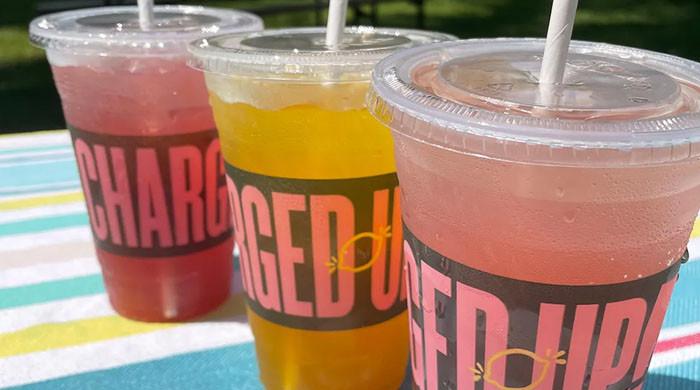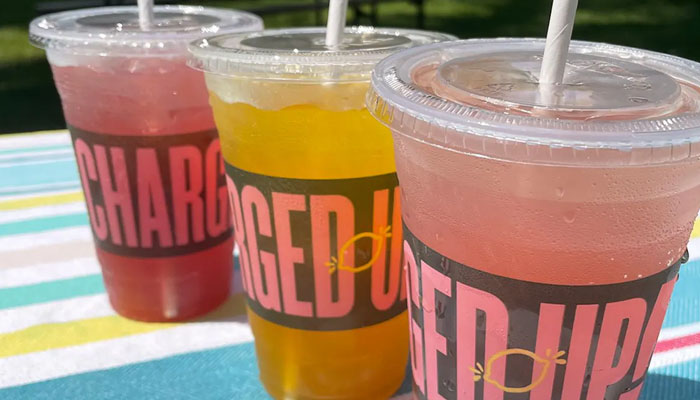Panera Bread’s ‘Charged Lemonade’ linked death spikes caffeine concerns
Caffeine is generally safe for most individuals, but too much can be deadly as recent press coverage has raised concerns about the caffeine content of Panera Bread’s certain popular drinks and what customers should know about the potential health effects.
According to a complaint filed on Monday, a man died of cardiac arrest after drinking three of Panera Bread’s extremely caffeinated “Charged Lemonades.” Parents of a college student with a cardiac problem said their daughter died after consuming one of the drinks in October. According to a Panera representative, the company “stands firmly by the safety of our products” and believes the complaints are without substance.
Senator Chuck Schumer expressed concerns about the high caffeine concentration in PRIME Energy beverages earlier this year, urging the Food and Drug Administration (FDA) to conduct an investigation.
Doctors also cautioned children against ingesting PRIME drinks — a brand co-founded by YouTube sensation Logan Paul, who is popular among adolescents and preteens — despite product labels stating that the beverages are not intended for children under the age of 18.
According to the American Academy of Paediatrics, there is no known safe caffeine intake for children, and those under the age of 12 should avoid caffeine use.
The association also recommends that children and teenagers avoid any energy drinks and that youngsters aged 12 to 18 consume no more than 100 mg of caffeine per day.
Dr Mallika Marshall told CBS news Boston that children are especially prone to the health impacts of caffeine, which include interrupted sleep, digestive difficulties, dehydration, anxiety, jitteriness, palpitations, and elevated blood pressure. This is especially risky for youngsters who have undiagnosed or untreated cardiac problems.
The FDA states that healthy persons over the age of 18 may normally drink up to 400 milligrammes of caffeine per day — about four or five cups of coffee — without suffering harmful or unpleasant consequences.
“However, there is wide variation in both how sensitive people are to the effects of caffeine and how fast they metabolise it (break it down),” the agency notes.
According to the FDA, excessive caffeine use can result in sleeplessness, nervousness, anxiety, a high heart rate, an upset stomach, nausea, headache, and a sensation of sadness.
Caffeine toxicity can develop at greater doses, approximately 1,200 milligrammes, according to Dr Randy Peters of Allegheny Health Network, who spoke to CBS news Pittsburgh recently.
“Now we’re talking about outright (heart) palpitations, tremors, shakiness, maybe even panic attacks, if not anxiety,” Peters warned.
How much caffeine is in Panera’s charged Lemonade?
Panera Bread’s Charged Sips beverages come in a variety of flavours, including Strawberry Lemon Mint Charged Lemonade, Mango Yuzu Citrus Charged Lemonade, and Blood Orange Charged Splash, all of which contain high quantities of caffeine.
According to the lawsuits and the company’s website, a large 30-ounce Mango Yuzu Citrus Charged Lemonade includes 390 milligrammes of caffeine and 124 grammes of sugar. According to another Panera website, the identical product and size include 235 milligrammes of caffeine and 74 grammes of sugar. According to Panera, the increased caffeine and sugar values entail the same product without ice.
Caffeine levels for a typical 20-ounce dish range from 157 to 260 milligrammes on Panera’s website.
In comparison, a cup of coffee has around 100 milligrammes of caffeine. “That’s an 8-ounce cup of coffee, not a grande with three shots of espresso,” Peters said. A 16-ounce can of Monster Energy drink has 160 milligrammes of caffeine, whereas an 8.4-ounce can of Red Bull contains 80 milligrammes.
“Consume in moderation,” says a sign over the drink selections on Panera’s website. “NOT RECOMMENDED FOR children, people sensitive to caffeine, pregnant or nursing women.”
For all the latest health News Click Here


